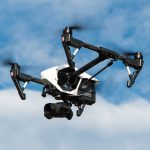Sniffer Dogs and ‘Reasonable Suspicion’

Our video and Blog post below talks about Sniffer Dogs and ‘Reasonable Suspicion’.
The media recently reported that 4 out of 5 people who are indicated by drug dogs to be in possession of illegal drugs, do not actually possess drugs at all. Rather, the indications may result from the individual possessing food, or having been in contact with other dogs or from having minute traces of drugs from every day human contact.
This raises the question of whether an indication by a drug dog is sufficient to ground the ‘reasonable suspicion’ that is required for police to search a person or their vehicle.
The law in NSW is that police can, without a warrant, search a person or their vehicle for drugs IF, and only if, they have a ‘reasonable suspicion’ that the person possesses drugs at that particular time; for more detail see our webpage www.sydneycriminallawyers.com.au/criminal/offences/drug/illegal-searches/
Currently, police regularly use indications by ‘drug dogs’ as sufficient in themselves to raise a ‘reasonable suspicion’ and thereby justify a search.
However, if most indications by drug dogs are indeed ‘false alarms’, there would appear to be an argument that the indications are not enough by themselves to ground a ‘reasonable suspicion’.
It will be interesting to see whether further research supports the media report and, if so, whether any appeal against a conviction arising from a search based solely upon a drug dog’s indication would be upheld on the basis that such an indication is insufficient by itself to ground a ‘reasonable suspicion’.






